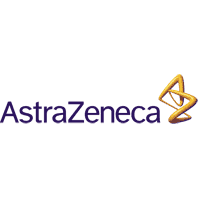Rosuvastatin cuts risk of catching pneumonia, study finds

Patients taking AstraZeneca Plc’s cholesterol-lowering medicine Crestor (Rosuvastatin) in a study were less likely to develop pneumonia, a finding that potentially will broaden use of such drugs.
The result supports earlier research suggesting drugs in this class, called statins, prevent deaths from pneumonia. The latest study, an analysis of a 17,000-person clinical trial that ended in 2008, was presented today, in Boston, at the Interscience Conference on Antimicrobial Agents & Chemotherapy.
Cholesterol drugs, led by Pfizer Inc.’s Lipitor, were the world’s second-best-selling category of medicines last year, with $35.3 billion in sales, according to IMS Health Inc., a health research company in Norwalk, Connecticut. Only cancer drugs exceeded that tally. The latest Crestor finding justifies further research into giving statins to patients with lung disease, scientists said.
“These data are consistent with the hypotheses that statin therapy may reduce incident pneumonia,” supporting further study of the drugs to treat pulmonary disease, the researchers wrote.
Statins work by blocking an enzyme involved in cholesterol production in the liver. Results from a separate study in 2008 showed that people hospitalized with pneumonia were less likely to die if they took a statin. There is also evidence the drugs may help reduce inflammation, the formation of blood clots, and the immune system’s inappropriate attacks on healthy tissue.
Side-Effect Reports
The results released today come from an analysis of a study called Jupiter designed to show whether Crestor was more effective than a placebo at reducing cholesterol levels. Since the original study didn’t set out to measure the effect on pneumonia, researchers went back and examined reports collected during the trial to compare rates of pneumonia and other infections among those getting Crestor and those on a placebo.
The analysis found that 257 patients taking a placebo developed pneumonia compared with 214 patients taking Crestor, researchers said. Patients taking Crestor were also less likely to develop fungal, soft tissue or gynecological infections.
Crestor generated $4.5 billion in revenue last year for London-based AstraZeneca; Lipitor had sales of $11.4 billion.
Pneumonia kills about 52,000 people a year in the U.S., with the elderly and infants being most at risk, according to the Centers for Disease Control and Prevention, based in Atlanta.
read more» Read more...
















